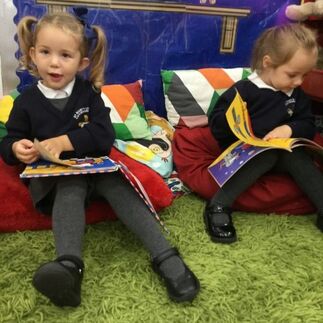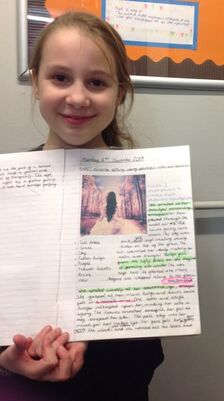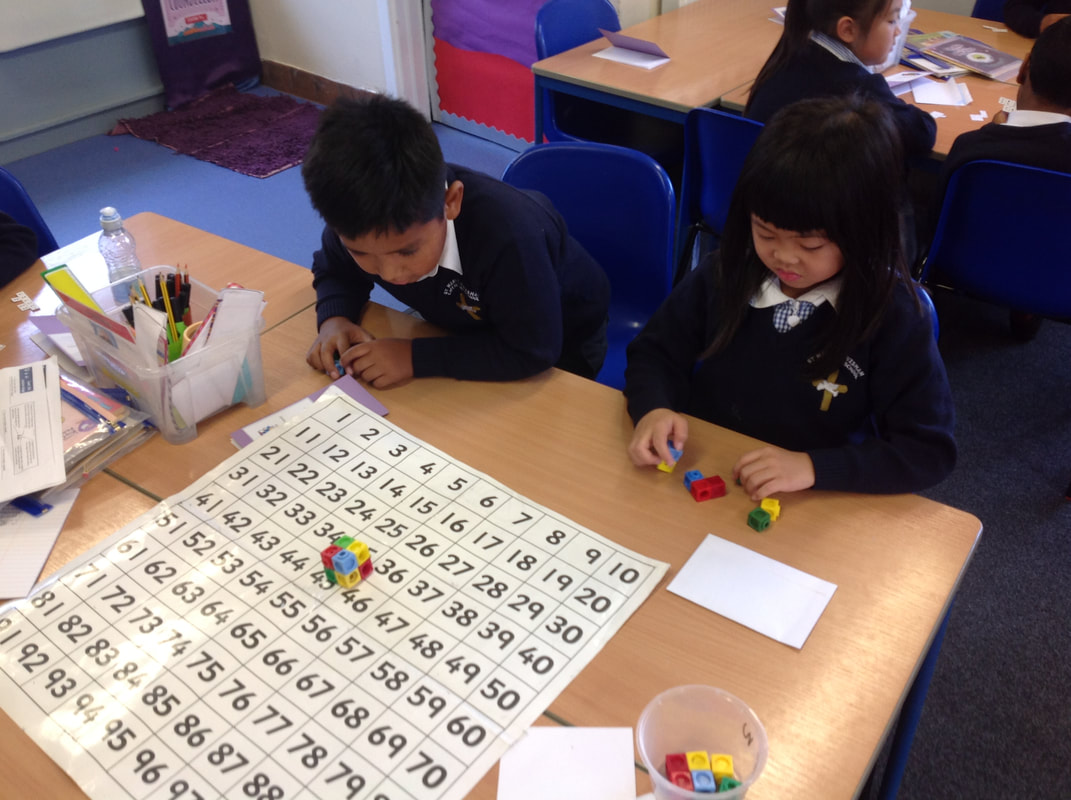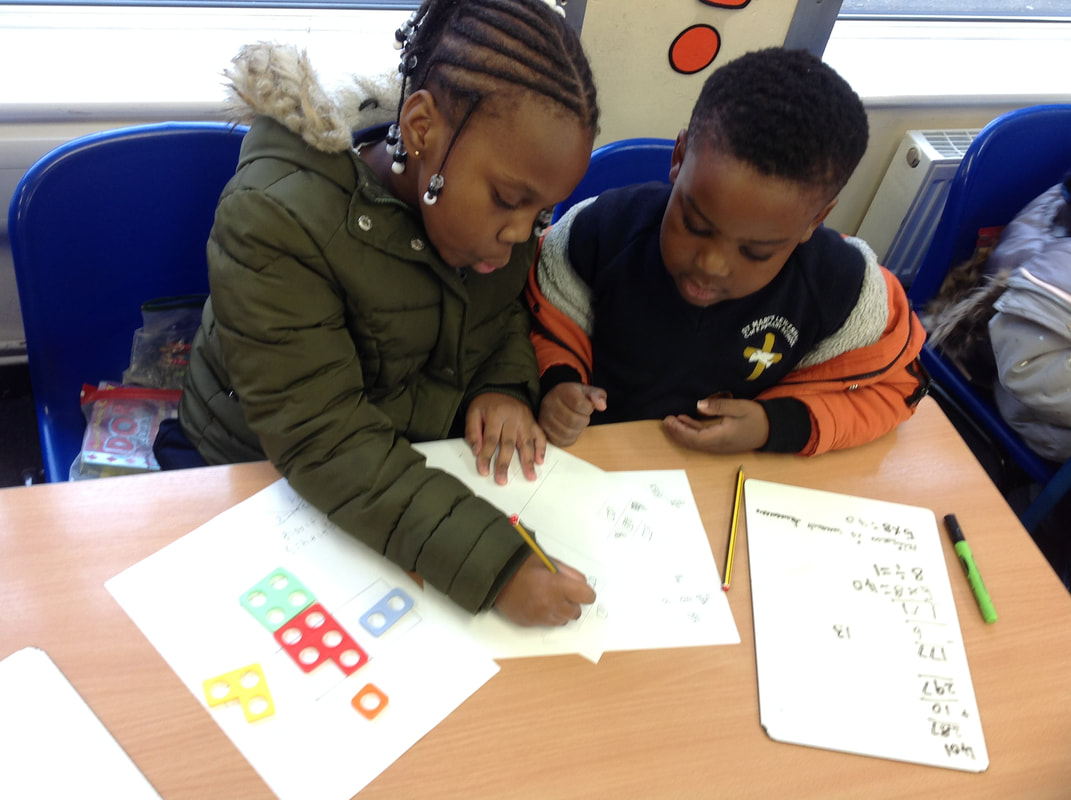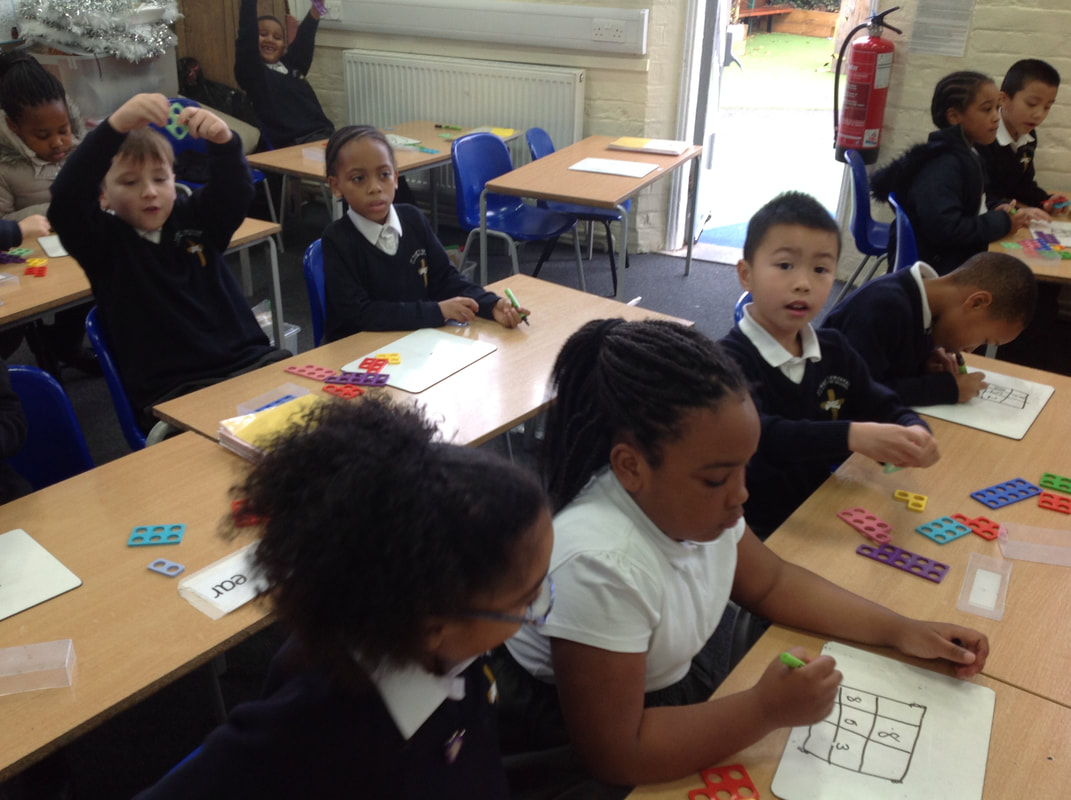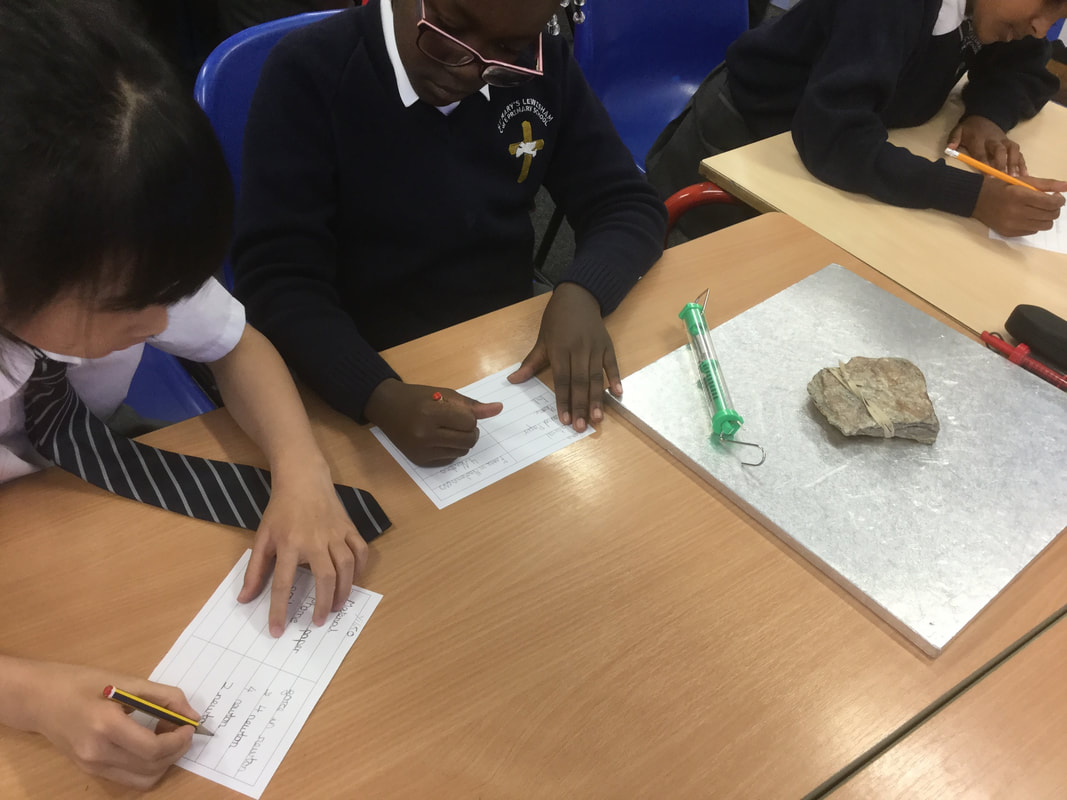The Core Subjects
A half-termly breakdown of the English, Maths and Science learning in each class can be found
by following this link to our THEMATIC CURRICULUM.
by following this link to our THEMATIC CURRICULUM.
ENGLISH
In English at Key Stage 1, children are encouraged to speak confidently and to listen to what others have to say. They are taught to read and write independently and with enthusiasm. In Literacy lessons children are taught a variety of skills which include word recognition, grammar, spelling, handwriting skills and compositional skills.
In Key Stage 2, children are taught to speak and write to suit different situations, purposes and information. In writing, they are taught to plan and draft their work, building on the work from Key Stage 1. We hope that all children will leave us with their own individual style of writing, reading coherently and fluently and being able to express themselves clearly.
In Key Stage 2, children are taught to speak and write to suit different situations, purposes and information. In writing, they are taught to plan and draft their work, building on the work from Key Stage 1. We hope that all children will leave us with their own individual style of writing, reading coherently and fluently and being able to express themselves clearly.
|
Reading and Phonics
Early reading in EYFS and KS1 is taught using the Read Write Inc. phonics programme and weekly 1:1 reading sessions. 1:1 tuition and more regular reading is arranged for children who are reading below the expected level or struggling to make progress. All children take home a RWI reading book at the appropriate level as well as a reading book from the library of their own choice. Phonics lessons are also made available online as part of the children’s homework. All children are carefully assessed on a half-termly basis (more regularly if needed) and grouped accordingly. Whole class story time takes place at least daily and is carefully planned to ensure that the children are enjoying a variety of high-quality texts. KS2 Reading is taught through daily (30-40 minutes) Destination Reader sessions with a Big Picture session taking place on a Friday that teaches children how to answer comprehension questions. Each DR session introduces new vocabulary and children are taught to reflect on texts using a variety of reading strategies including inference, prediction and making connections. There are many opportunities for children to discuss high quality texts and read independently with their talk partners. ‘Selfies’ are used to capture evidence of children using the reading skills and these are kept in their personal reading albums. Each class has a high-quality fiction text to focus on each half term and these are supplemented with other non-fiction (usually relating to topic lessons) and poetry texts. Children take home a reading book of their choice from the school library and, where appropriate, a Big Cat book to support their reading development. All books will be monitored regularly to ensure children are reading at the appropriate level. Writing
At St Mary’s we use the ‘Talk for Writing’ approach from Nursery all the way through to Year 6. The approach involves children learning stories and a variety of non-fiction texts off by heart, performing them, analysing them and using them as inspiration to create their own pieces of writing. Children gradually build up a bank of stories and non-fiction text types so that over time they can tell (and write) imaginative and exciting stories and confidently instruct, argue, discuss, explain, inform and persuade. In EYFS and KS1, children are taught to spell phonetically in their daily Read Write Inc lessons and apply this learning to writing in many different contexts throughout each day. ‘Tricky words’ that cannot be spelled correctly using phonics are taught during Read Write Inc lessons too, and are given to the children to learn as part of their homework. In KS1, spellings are tested weekly. In KS2, children investigate different spelling rules as part of their daily ‘Spelling Gym’ sessions. These sessions allow children to investigate spelling patterns and practise applying the rules that they discover. Children are given spellings to learn as part of their homework and these are tested weekly. Handwriting is fully cursive and is taught at least 3 times per week in all year groups; teachers have high expectations of children’s handwriting and presentation at all times. |
MATHS
|
Through our daily maths lessons we aim to equip the children with a uniquely powerful set of tools to make sense of the world around them. These tools include developing the ability to calculate, apply logical reasoning, problem-solving skills, and the ability to think in abstract ways. We have a problem solving skill each half-term and the children enjoy a wide range of maths challenges - CLICK HERE to see some examples.
We aim to enable the children to understand relationships and patterns in both their maths lessons and in their everyday lives. We want the children to see Mathematics as being relevant to their world as well as being something that they will need as they move on through their school life and ultimately to the world of employment. We want the children to have a sense of awe and wonder surrounding Maths. The emphasis of the National Curriculum is to ensure that all children become fluent, that they can solve problems and reason and explain mathematically. The National Curriculum sets out year-by-year programmes of study for key stages 1 and 2. This ensures continuity and progression in the teaching of mathematics. The EYFS Statutory Framework 2014 sets standards for the learning and development of children in the EYFS, supported by the ‘Development matters’ non statutory guidance. Years 1-6 use the Power Maths and White Rose Maths Hub schemes of learning as their medium term planning documents. These schemes provide teachers with exemplification for maths objectives, broken down into small steps and including fluency, reasoning and problem solving, key aims of the National Curriculum. They support a mastery approach to teaching and learning and have number at their heart. Teachers are provided with a range of additional resources to support daily planning, such as NCETM, Nrich and I See Reasoning. EYFS planning will ensure the children learn through a mixture of child initiated and adult led activities, both inside and outside of the classroom |
SCIENCE
|
We aim to stimulate curiosity, enquiry and caring for the natural and man-made world.
The children learn to understand scientific concepts and develop knowledge and skills through practical activities and by using reference materials. Science is taught as part of the Thematic Curriculum, linked to the half termly topics. The content covers the complete National Curriculum for Science. We hold an exciting Science Day every year, where each child spends the whole day investigating and exploring four different Science experiments - CLICK HERE to find out more. |

